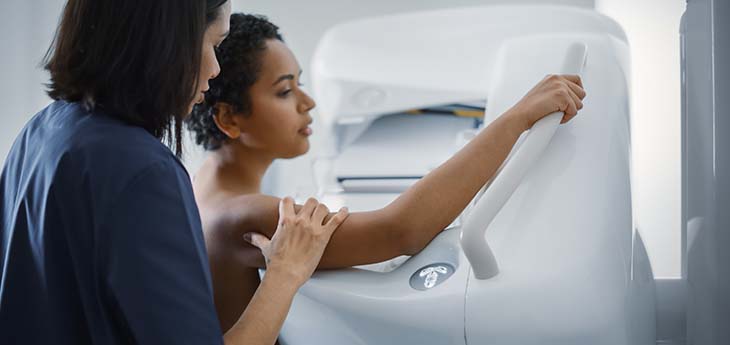 |
| Photo credit UC Davis Health |
CANCER DIGEST – April 2, 2022 – Half of women who have an annual mammogram will experience a false positive result over 10 years of screening, according to a new analysis of breast cancer screening data published in the March 25, 2022 journal JAMA Network.
The study led by Michael Bissell, an epidemiologist at UC Davis and That-Quyen Ho a research fellow at the university analyzed data from 3 million screening mammograms done for 903,495 women ages 40-79. The screenings were performed at 126 radiology clinics over a 13-year period between 2005 and 2018.
The analysis looked at screening modality, interval, age and breast density. A false positive result is defined as a patient being recalled for additional imaging and followup tests for a suspicious lesion shown on a breast imaging study. If determined to be cancer-free the patient is considered to have received a false positive result.
The researchers estimated that over 10 years of annual screening, 50 percent of women will experience at least one false positive recall from 3D mammograms and 56 percent will be recalled for a false positive from a 2D mammogram. Between 11 and 12 percent of those recalls resulted in biopsy, which involves using a needle to extract tissue for a pathology exam.
For women screened every two years the risks of false positive recall was 35.7 percent for 3D mammography and 38.1 percent for 2D mammography, which is considered a significant reduction in false positive recalls.
“We were surprised that the newer 3D technology in breast cancer screening does not substantially reduce the risk of having a false positive result after 10 years of screening,” said Ho in a press release, "however, chances of false positives are much lower with repeated biennial vs. annual screening."
The findings seem to support the recommendations of the US Preventive Services Task Force (USPSTF), which in 2016 recommended biennial screening for women between ages 50 and 74 years, and recommended against routine screening in women ages 40 to 49 years.
That recommendation was met with protests from the Radiological Society of North American (RSNA), which in 2018 strongly advocated annual breast cancer screening beginning at age 40.
Sources: UC Davis Health press release, JAMA Network and USPSTF website.


No comments:
Post a Comment